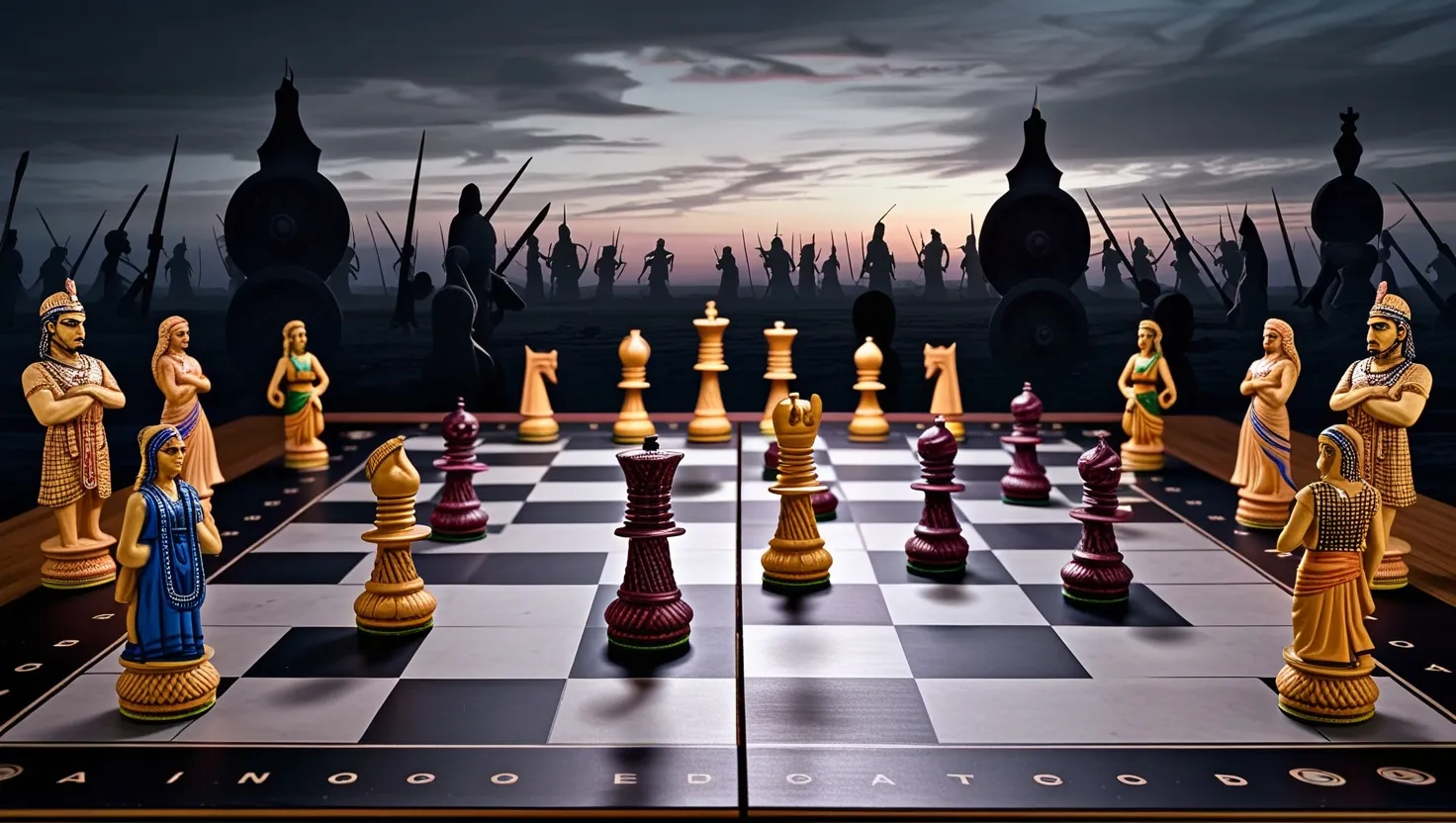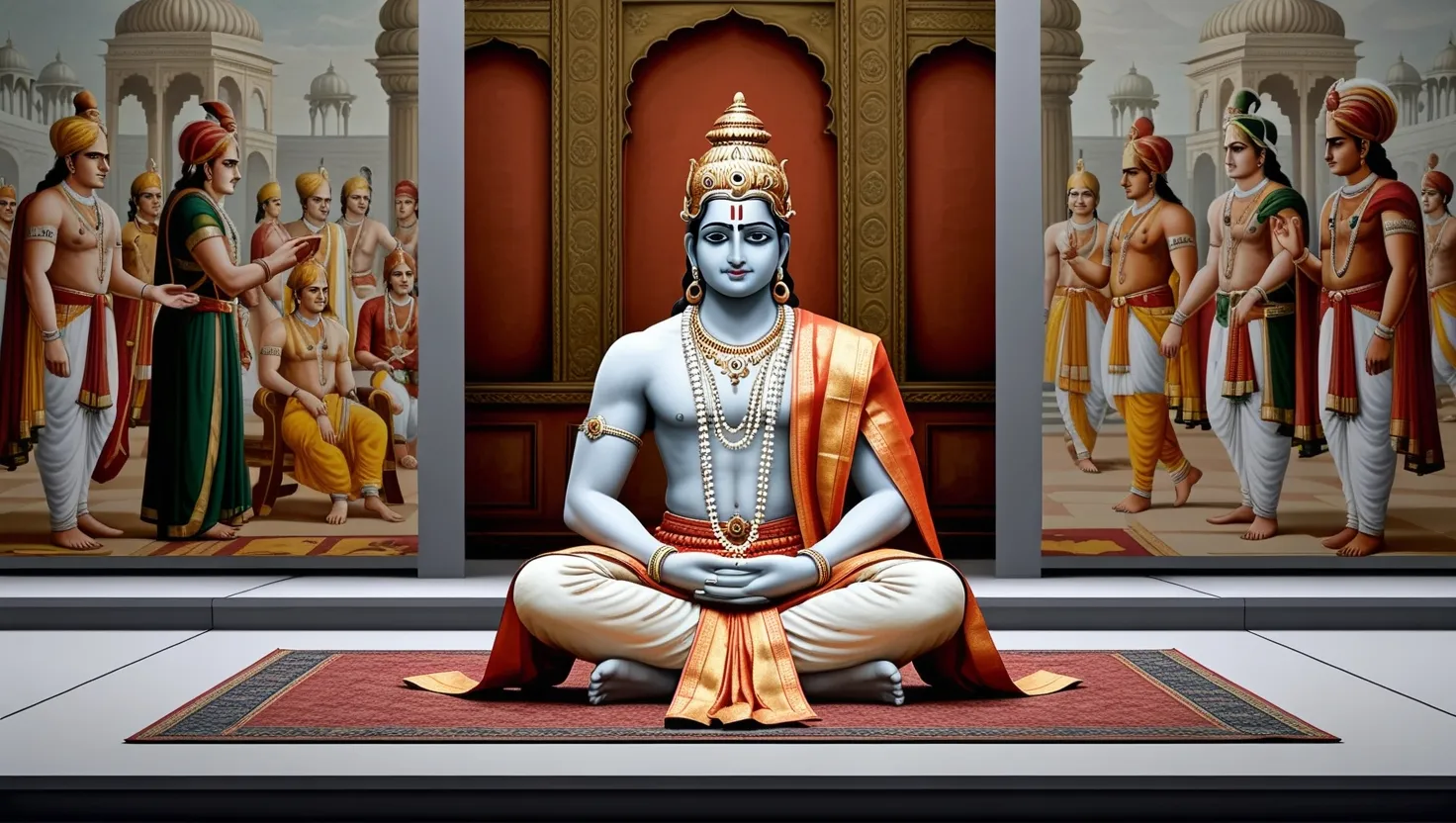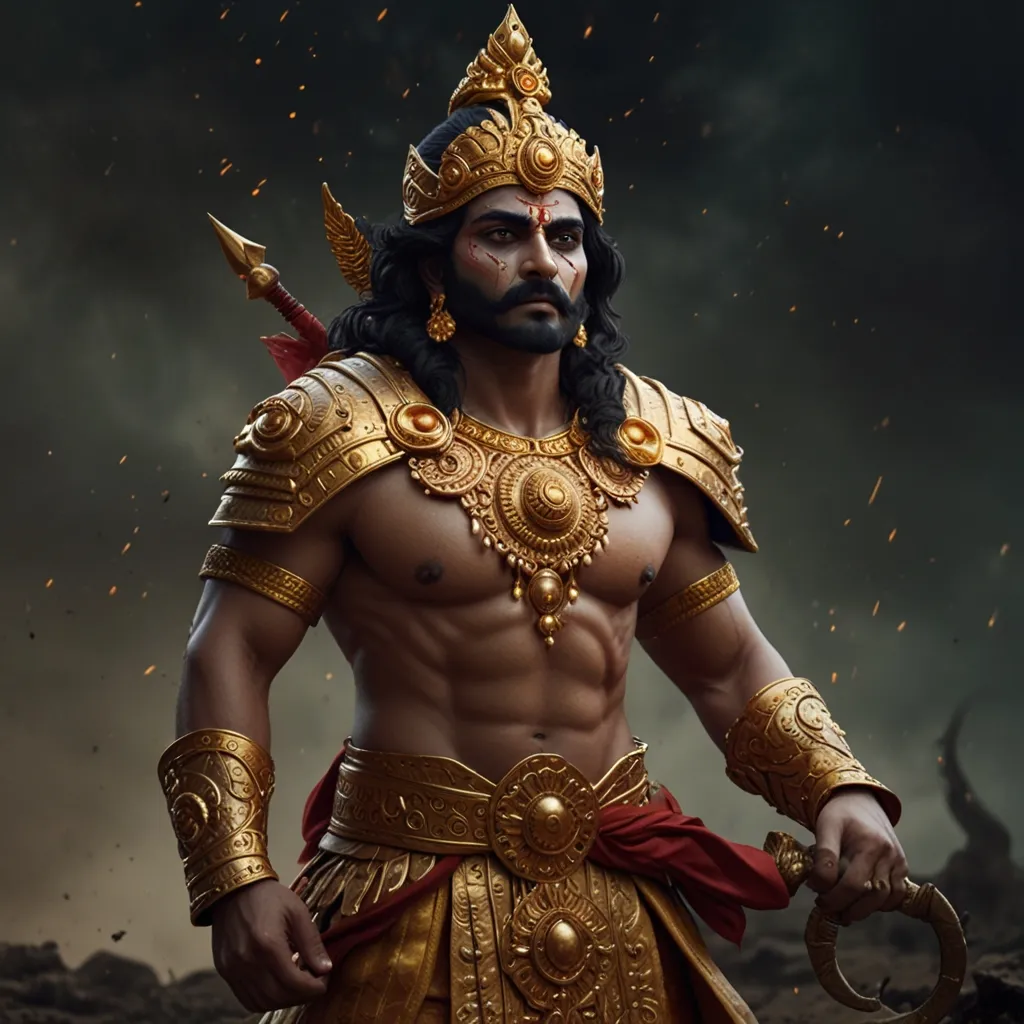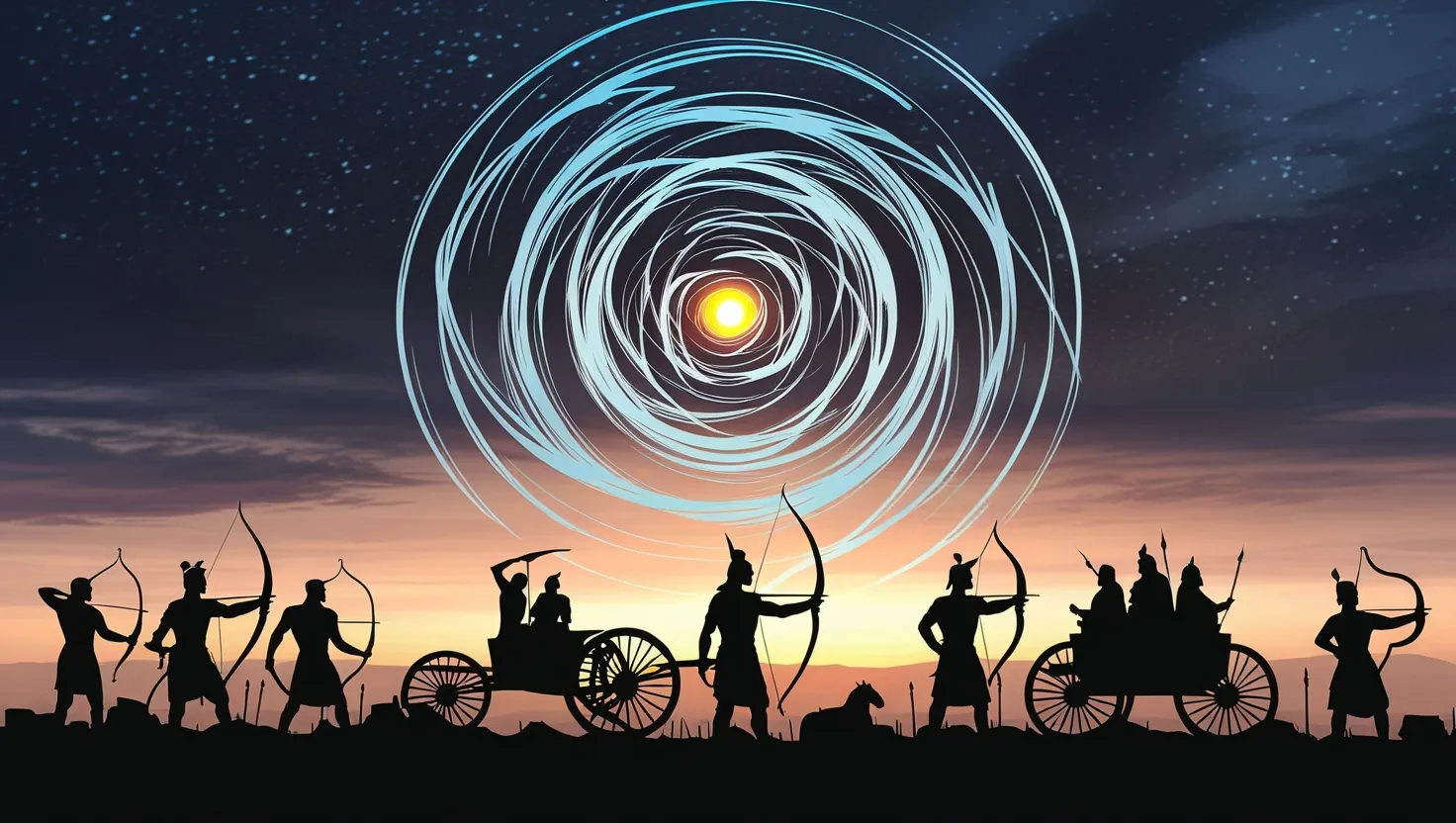The Mahabharata, a monumental epic, intricately weaves the themes of duty, morality, and the consequences of strategic decisions into its narrative. Imagine life as a chess game, where each choice ripples through the fabric of existence, impacting not only the immediate players but generations to come. As I reflect on this philosophical perspective, I believe it’s crucial to delve into how the Mahabharata serves as a profound guide on strategic decision-making—one where every move counts, and the stakes are undeniably high.
At its core, the Mahabharata offers a rich tapestry of events that highlight the weight of seemingly minor choices. Consider Arjuna’s pivotal decision to seek divine weapons during the Pandavas’ exile. This choice, though rooted in a desperate need for power, becomes a cornerstone for their ultimate victory. Here, we see how proactive decision-making, even in the face of adversity, can alter the trajectory of one’s fate. Have you ever considered how a small decision in your own life led to significant outcomes?
Echoing through the ages is the tragic fate of Abhimanyu, whose limited knowledge of the chakravyuha formation ultimately leads to his demise. This moment serves as a critical reminder: incomplete information can shape destinies in unforeseen ways. In an era where information is readily available, the story prompts us to reflect: Are we making informed decisions, or are we navigating through foggy terrains without adequate knowledge?
Krishna’s role in the Mahabharata is akin to that of a chess grandmaster. He possesses a vantage point, observing the entire board while others are confined to their immediate struggles. Through this lens, I find Krishna’s guidance to the Pandavas deeply insightful, as it often challenges them to prioritize long-term victories over short-term gains. This mirrors strategies in chess, where sacrificing a piece can lead to a stronger position down the line. Have you experienced a moment where sacrificing something valuable led to greater success later?
Positioning is a theme that resonates throughout the epic. Dhritarashtra’s attachment to his throne blinds him to the impending doom that his decisions create. Duryodhana’s refusal to concede even a minuscule piece of land to the Pandavas illustrates the dangers of territorial obsession. Such fixation not only leads to personal downfall but also engenders a cycle of destruction that affects all involved. This creates a compelling question: How often do we cling to our positions or beliefs at the expense of broader understanding and harmony?
As the war looms, the Mahabharata’s narrative shifts into a complex endgame. The conventional codes of warfare dissolve under the pressure of survival, leading characters to abandon their principles. Bhima’s infamous strike below the belt and the killing of sleeping warriors shatter the notion of dharma. This transformation reflects the harsh realities of conflict, where the noble ideals can be trampled by the brutal necessities of war. What do you think makes us compromise our ethical standards in desperate situations?
The consequences of these strategic choices ripple outward, shaping the moral landscape within which characters operate. Each character embodies unique facets of decision-making and ethical dilemmas, forcing us to question the nature of righteousness. The dice game, orchestrated by Shakuni, highlights a particularly poignant moment where the fabric of dharma is tested. As Yudhishthira willingly engages in a gamble that leads to devastating losses, we must ask ourselves: How do our thirst for victory and our personal flaws intertwine, leading us down paths we might otherwise avoid?
In a world that often celebrates immediate wins, the Mahabharata challenges us to pursue a deeper understanding of our choices. Krishna’s advice to Arjuna in the heat of battle serves as a guide—not just in the context of warfare, but in all aspects of life. His teachings emphasize the balance between duty and morality. As we navigate our own lives, the query arises: Are our actions aligned with our values, or do we find ourselves sacrificing our principles for temporary gains?
The strategic lessons of the Mahabharata are not merely for scholars or strategists but resonate with anyone grappling with ethical dilemmas or complex decisions. In business, for instance, the themes of alliance building and strategic patience are potent reminders of the importance of long-term vision in achieving success. How can these age-old lessons be applied in our modern contexts?
As we dissect the actions of the characters, from the mighty Bhishma to the scheming Shakuni, we uncover layers of human emotion and intellect that reflect our own struggles. The ethical dilemmas faced by these figures prompt introspection about our decisions and their repercussions. It leads me to wonder: What sacrifices are worth making, and what lines should never be crossed, irrespective of the circumstances?
Moreover, the Mahabharata underscores the importance of allies. Yudhishthira’s quest for support before the war exemplifies the necessity of building a coalition grounded in shared values. The ethical leadership displayed by the Pandavas stands in stark contrast to the Kauravas, who rely on manipulation and deceit. This raises a thought-provoking point: In our endeavors, how crucial is it to align our partnerships with our moral principles?
The epic culminates in a tremendous clash, filled with lessons on resilience, sacrifice, and the burdens of leadership. Arjuna, standing on the battlefield, faces the formidable task of reconciling his duty as a warrior with his love for family and friends on the opposing side. This predicament resonates with many of us. How do we balance our personal loyalties with our professional or societal responsibilities?
The conclusion of the Mahabharata is as multifaceted as its narrative. While it presents a victory for the Pandavas, it also showcases the profound loss incurred through their journey—the empty throne of Hastinapur, echoing with the absence of its once-great warriors. In reflecting on these outcomes, I am reminded that every decision carries weight beyond the immediate, shaping not just our lives but the lives of those around us.
The strategic dimensions outlined in the Mahabharata continue to hold relevance in contemporary discussions on leadership and decision-making. The choices echo through time, inviting us to learn from the past as we forge our paths forward. What narrative shall we script in our lives, and how will we ensure that our decisions foster growth, understanding, and ethical conduct?
As the chessboard of our lives continues to unfold, let us carry forth the lessons of strategy, ethics, and the intricate dance of karma. Every decision we make is a move on this grand board, shaping our destiny and that of those who follow in our footsteps. Are we prepared to take responsibility for our choices and the legacies we leave behind? The Mahabharata beckons us to ponder these essential questions as we navigate our own journeys in this complex and ever-changing world.






